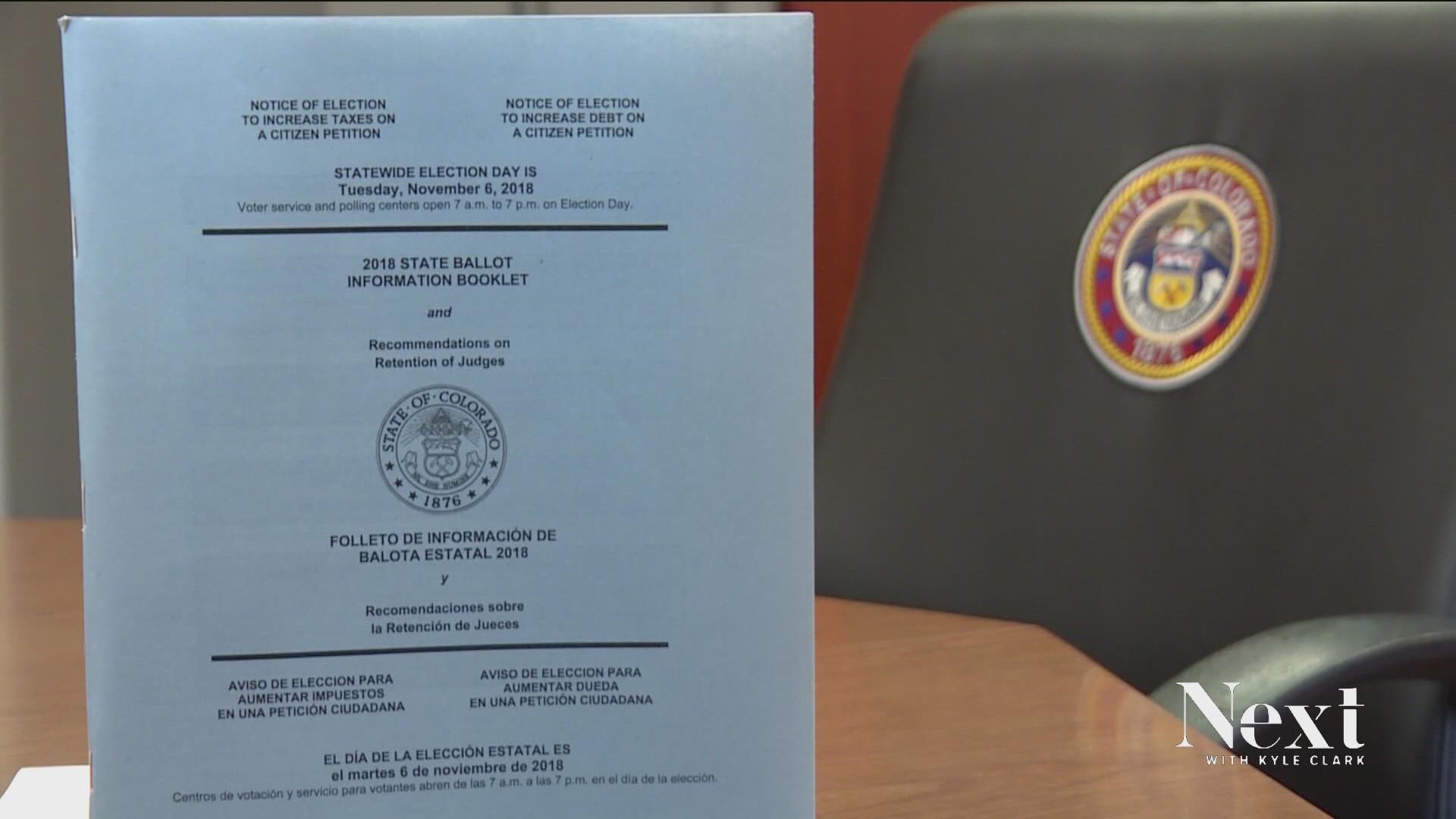DENVER — Facts should help voters make an informed decision during elections.
Last year, we discovered the city of Denver sends out ballot information that is not necessarily factual.
After the attention we put on the issue, the city started working on fixing the problem.
"It is my goal to ensure that we have an accurate Blue Book," Denver City Councilwoman Kendra Black said. "One hundred percent, it should be accurate, which is one of the reasons I started working on this effort."
Black was part of the Ballot Access Modernization working group that has made multiple recommendations to address Denver election issues.
One of the areas they discussed was the factual accuracy of Denver's ballot information guide, the city's version of a statewide Blue Book.
The state sends out an actual, blue-colored book that describes statewide ballot issues that all voters will see on their ballots.
Non-partisan state legislative staff work on multiple drafts that summarize and analyze what a statewide ballot issue would do if passed.
That process goes through more checks and balances than Denver's process, where someone can submit a comment fewer than 500 words and have it printed without being vetted for facts.
"In Denver, we don't have that kind of neutral legislative staff that is dedicated to that," Black said. "What the Clerk's Office has been doing is just editing to make sure it fits. As you noted, some of the information has not been verified."
For the November 2021 election, Denver voters decided multiple bond issues. One of them was 2C, which passed. That issue asked Denver voters if the city could borrow money for transportation projects, including bike lanes.
The comments against 2C were written by one Denver registered voter. In her comments, she wrote, "A recent study shows that .02% of the traveling public uses the lanes," in reference to South Broadway bike lanes.
The study turned out to be a two-hour observation on one day by the head of Colorado's Automobile Dealers Association.
When Next with Kyle Clark reached out to the voter who submitted the comments against 2C, she said, "It didn't ask for facts, it asks for comments."
"We need to be really careful about that and avoid what happened in 2021," Black said.
The city of Denver does not have the same nonpartisan staff that the state has for its Blue Book.
"You want someone who is apolitical, but is also an expert on legislation," Black said. "One of the problems is, is just economic realities and what do they do the rest of the year?"
She said that city council will consider approving a triad to review pro/con statements before they are printed.
"Staff from the Clerk and Recorder's Office, with the city attorney and with the legislative staff of city council will work to summarize and synthesize those pro and con statements," Black said. "The hope is that that will, sort of, ensure that only accurate things are printed."
However, city and state law prevent public funds from advocating for or against ballot issues. It is not clear if it would be considered advocating by taking out what the city deems misinformation.
Denver to stop reusing ballot issue numbers
Another issue that was revealed last year was about how Denver numbers its ballot issues.
Each election, Denver started at 300 for citizen referred measures, and started at 2A for council referred measures. That was an issue in 2021 when voters searched online for information about ballot issue 300.
In 2021, ballot issue 300 was about increasing the retail marijuana tax. Online searches easily pulled up information about ballot issue 300 in 2019, which was about a camping ban.
Starting this year, ballot issue numbers will not be immediately reused. Citizen referred measures will start at 305 in 2022 and continue to 399 before resetting back to 300.
"The same thing for referred measures, so it will go 2A and then will go all the way to 2Z before we start from the beginning," Black said. "So it will be years before they start over."

